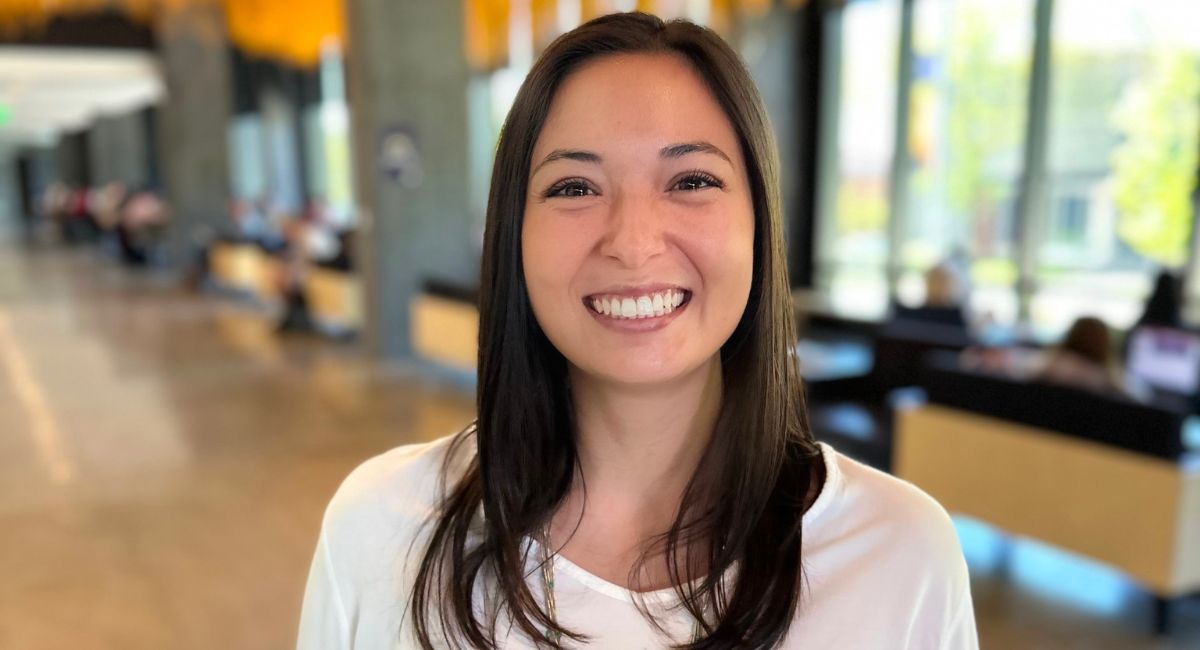
While working at the Seattle Indian Health Board as an undergraduate student at the University of Washington, Helena Darrow realized that serving her Native community was what she wanted to do as a career. To support this path, Darrow enrolled in the Community Oriented Public Health Practice (COPHP) program at the UW’s School of Public Health. Darrow, who is a recipient of the Rattlinggourd Endowed Scholarship and Fellowship Award, found herself drawn to the COPHP program because of its commitment to anti-racism, equity, and focus on communities.
In this Q&A, Darrow describes her experiences at the School, her capstone project, and why it is important to center community and Native voices in public health to create lasting change.
What drew you to the public health field?
I started working at the Seattle Indian Health Board as I was finishing my undergraduate degree in biology from the UW. I worked there for four and a half years, first as an educational case manager, and then as a program manager at the Urban Indian Health Institute. While there, I led their youth program that aimed to prevent suicide and substance misuse among urban Native youth through promoting cultural connections. Working with my community was really grounding, and my time there helped me determine that serving the Native community is something that I would be proud to do for my career.
Why did you decide to remain at the UW for graduate school?
I took a graduate school prep course during my senior year and chose the UW SPH’s COPHP program. I was drawn to the program’s commitment to anti-racism, equity, and obviously the focus on communities since such a big part of my career so far has been working with Native communities. I’m also from this area, so it’s been great to stay close to family.
Which experiences at the UW School of Public Health have been the most influential?
The COPHP program has been a unique experience because it’s so different than any other MPH program. It's been wonderful to have such a small cohort to get to know and work so closely with each other. I really enjoyed the real-world learning opportunities where my classes partnered with organizations to support their work.
For example, last fall the COPHP policy block partnered with Washington State’s Environmental Justice Council to evaluate several environmental justice screening tools, and we were able to see some of our work put into legislation during this past session. We also worked with the Okanogan County Coalition for Health Improvement the previous fall to develop a health data strategy to address barriers to accessing and sharing health data in order to better identify community health needs and priorities. Most recently, we partnered with the Greenwood Senior Center to conduct a formative evaluation of a virtual intergenerational connections program.
Tell us about your capstone project with your tribe, the Fort Sill Apache in Apache, Oklahoma. What impact do you hope it will have?
I haven’t worked with my tribe much because they are so far away, so it's been great to meet the people there and learn more about what's going on. I went to Oklahoma in January to interview tribal members about their experiences and attitudes towards traditional foods. My hope was to collect recipes and information on different traditional foods from tribal members and work on a diabetes prevention curriculum. From my interviews I heard, “Oh, my grandma made this for me when I was growing up,” or “I think this type of food was used before.” Many people were very interested in learning more, but the information just wasn’t available.
My tribe has been through a lot in terms of losing their culture, so there is a lot of groundwork to be done, and this is part of it.
At this point I have moved to working with the tribal historian, who I also interviewed and received a lot of good information from. I will be doing more extended interviews with the historian about some different traditional foods that he's aware of as well. My ultimate goal is to make sure this cultural and tribal knowledge isn’t lost and can be shared with tribal members.
As the recipient of the Rattlinggourd Endowed Scholarship & Fellowship, how has this funding supported your academic goals?
This award helped cover travel expenses for my site visit to Oklahoma to conduct in-person interviews. In-person work is an important consideration when working with Native communities as it ensured that I was able to collect high-quality, comprehensive data to inform my capstone.
How does centering tribal and community voices in your work help create lasting change?
I think that centering community and tribal voices in the work makes interventions more successful. Culturally-tailored, community-based work really creates a sense of identity and culture that allows people to become more interested in learning more about an intervention and willing to participate if they can see themselves in it.
What advice do you have for potential new public health students or something you wish you knew before beginning your public health studies?
Graduate school can feel intimidating, but it really doesn’t have to be; just know that you are more than qualified to be there. One thing someone told me before I started graduate school that shifted my perspective is that graduate school is not just you learning from professors. We all have past experiences that we bring, and the staff, faculty, and fellow students have a lot to learn from you as well.
What interests do you have outside of (or related to) public health? Any extracurricular activities?
I love hiking and reading and have been trying to get back into running after an injury. I’m planning to visit Greece this summer and go hiking there. But I also enjoy going to Native community events. I recently went to the UW Spring Powwow with several of my Native friends and classmates.